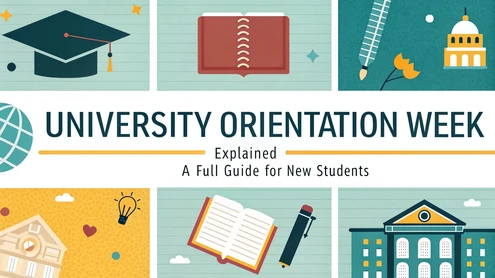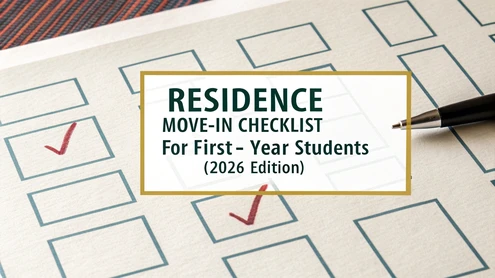If you're pursuing or have recently completed a Diploma in Policing in South Africa, you're probably asking yourself one critical question: “Can I get a job with this qualification?” The short answer is yes—a diploma in policing opens many doors, particularly in the field of law enforcement, criminal justice, and public safety. However, like any qualification, your chances of getting employed will depend on several factors including your practical experience, application process, timing, and the specific job market.
In this blog post, we’ll explore the various career opportunities you can access with a diploma in policing, including jobs within the SAPS (South African Police Service), private security, municipal law enforcement, and beyond.
1. What is a Diploma in Policing?
A Diploma in Policing is a formal qualification in law enforcement and criminal justice, typically offered at public TVET colleges and private colleges in South Africa. It equips students with foundational knowledge in areas such as:
-
Criminal law and procedure
-
Crime prevention and investigation
-
Law enforcement techniques
-
Community policing
-
Human rights and professional ethics
This qualification is usually NQF Level 6 and may take about 2 to 3 years to complete, depending on the institution and mode of study (full-time or part-time).
2. Can You Get a Job with Just a Diploma in Policing?
Yes, you can get a job with just a diploma in policing, but you will likely start in entry-level roles or positions that require minimal prior experience. The diploma is highly relevant for roles in law enforcement, security services, investigations, and government agencies.
It’s important to note that employment is not automatic—you still need to go through recruitment processes, such as applying to SAPS or municipal police departments, and you may also need to pass fitness tests, psychometric assessments, and background checks.
3. Career Opportunities with a Diploma in Policing
Here are some career paths you can explore with your qualification:
a) South African Police Service (SAPS)
While SAPS recruits trainees through its own entry-level police trainee programme, having a diploma in policing strengthens your application and may fast-track your career advancement within the police service.
Positions you can apply for include:
-
Police Trainee (Constable level)
-
Detective trainee (after further training)
-
Support roles within SAPS, such as crime analysts or administrative staff
Tip: Even though the SAPS entry-level trainee programme does not require a diploma, having one puts you in a better position for specialised units or promotion opportunities later.
b) Municipal or Metro Police Departments
Major cities like Johannesburg, Tshwane, Cape Town, and Durban have their own municipal policing agencies. A diploma in policing is often a requirement or a strong advantage when applying for:
-
Metro Police Officer
-
Traffic Officer
-
By-law Enforcement Officer
c) Private Security Sector
With crime levels being a concern in South Africa, the private security industry is massive and growing. You can work in:
-
Private investigation firms
-
Corporate security management
-
Security consultancy
-
Close protection services
Note: You’ll also need PSIRA registration (Private Security Industry Regulatory Authority) for many of these roles.
d) Correctional Services
The Department of Correctional Services may also consider applicants with a background in policing for roles such as:
-
Correctional Officer
-
Parole Officer
-
Rehabilitation Support Staff
e) Other Government Agencies
Various departments value candidates with policing or law enforcement training, such as:
-
Department of Home Affairs (immigration control)
-
South African Revenue Services (customs and border enforcement)
-
Department of Transport (road safety units)
4. What Employers Look For
Employers hiring graduates with a diploma in policing typically look for:
-
Integrity and clean criminal record
-
Physical fitness
-
Teamwork and discipline
-
Communication skills
-
Commitment to public service
-
Ability to work under pressure
Some may also value previous volunteering or internship experience at a police station or law enforcement agency.
5. What if I Don’t Get a Government Job Right Away?
Government jobs, particularly in SAPS or metro police, are highly competitive. If you don’t get in immediately:
-
Apply for internships or volunteer roles at your local police station.
-
Get PSIRA certification and join the private security industry.
-
Continue your studies—you can progress to an Advanced Diploma or Bachelor's Degree in Policing Practice, which improves your chances for leadership roles.
-
Build experience in related roles like campus security, patrol services, or community safety projects.
6. How Much Can I Earn with a Diploma in Policing?
Salary depends on the role, experience, and employer:
-
SAPS Police Trainee: Around R4,500 per month during training; after passing, Constables can earn between R12,000 to R18,000 monthly.
-
Metro Police Officer: Between R14,000 and R22,000 depending on location.
-
Private Security Supervisor: Typically earns between R8,000 and R15,000.
-
Correctional Officer: Starting salary around R13,000 to R19,000.
Higher qualifications, experience, and promotion to senior ranks will increase your salary significantly.
7. Helpful Tips to Boost Your Employability
-
Stay physically fit – many law enforcement jobs require you to pass fitness tests.
-
Apply early – keep an eye on SAPS and metro police recruitment announcements.
-
Network with professionals – build connections with serving officers and trainers.
-
Take short courses – like crime scene investigation, cybercrime, or firearms training.
-
Consider internships – even unpaid experience counts on your CV.
Final Thoughts
A diploma in policing can definitely lead to a fulfilling career, especially if you're passionate about law enforcement, community safety, and justice. While it might not guarantee a job instantly, it gives you a strong foundation to access entry-level opportunities and build your career over time.
Stay proactive, apply widely, and continue growing your skills. Whether in SAPS, metro police, private security, or another government agency—your diploma is the first step toward making a difference in your community.



